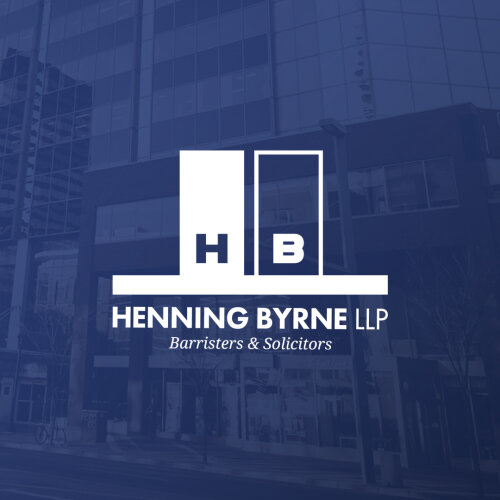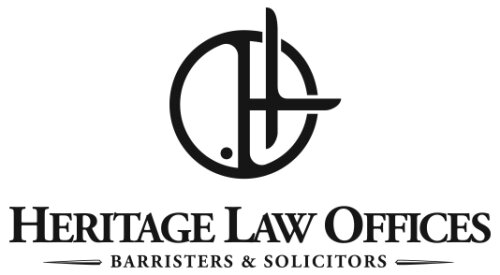Best Faith-Based Law Lawyers in Edmonton
Share your needs with us, get contacted by law firms.
Free. Takes 2 min.
List of the best lawyers in Edmonton, Canada
About Faith-Based Law in Edmonton, Canada
Faith-Based Law in Edmonton refers to the intersection of religion and legal practice, where individuals and communities seek to apply religious laws and principles within the framework of Canadian law. In Edmonton, as elsewhere in Canada, legal systems are secular, but there is recognition of religious freedom under the Canadian Charter of Rights and Freedoms. This has allowed faith-based principles to inform certain legal proceedings, particularly in areas like family law, alternative dispute resolution, and community organization governance.
Why You May Need a Lawyer
Individuals may seek the services of a lawyer experienced in Faith-Based Law for several reasons:
1. Family Law Disputes: Navigating family law issues, such as marriage, divorce, or child custody, while respecting religious doctrines.
2. Alternative Dispute Resolution: Utilizing mediation and arbitration that incorporate religious laws to resolve conflicts amicably.
3. Estate Planning: Structuring wills and estates according to specific religious guidelines.
4. Religious Organizations: Legal structuring and governance in accordance with faith-based principles for churches, mosques, temples, and other religious bodies.
5. Employment and Discrimination Issues: Addressing employment issues where religious practices might conflict with secular workplace policies.
Local Laws Overview
In Edmonton, several local laws and regulations intersect with Faith-Based Law:
1. Canadian Charter of Rights and Freedoms: Protects the free practice of religion and can influence legal interpretations.
2. Alberta’s Human Rights Act: Prohibits discrimination based on religion, assisting those navigating employment or service-related issues.
3. Family Law Act: Alberta's legislation allows certain faith-based principles to be considered in family law matters, provided they do not contravene statutory rights.
4. Arbitration Act: Provides the framework for faith-based arbitration, essential for resolving disputes out of court.
Frequently Asked Questions
What is the role of faith in legal proceedings in Edmonton?
Faith can serve as a guiding principle for some individuals and communities in legal matters, helping shape the processes or decisions, but always within the parameters set by Canadian law.
Can religious laws override Canadian laws?
No, Canadian law is supreme. However, individuals may choose to resolve disputes according to their faith, so long as this does not infringe upon statutory rights.
Is faith-based arbitration legally binding?
Yes, if both parties agree to faith-based arbitration, the outcomes can be binding, provided they adhere to the Arbitration Act.
How can religious beliefs impact a divorce proceeding?
While Canadian law governs the divorce process, aspects like religious divorce certification or agreed faith-based property settlements can complement the secular process.
Are there faith-based laws on inheritance in Edmonton?
Inheritance in Edmonton is governed by the Wills and Succession Act, but individuals may distribute their estate in line with faith-based wishes through proper legal documentation.
How do I ensure my religious organization complies with local laws?
Consult with a lawyer to ensure both compliance with secular regulations and the application of appropriate faith-based principles within your organization’s operations.
What if my workplace discriminates against my religious practices?
This would likely contravene the Alberta Human Rights Act, and legal advice should be sought to resolve such issues.
Is there legal support for faith-based refugee claims?
Yes, legal aid and specialized lawyers can assist with claims where persecution is based on religious beliefs.
Can religious holidays be considered in employment law?
Employers are generally required to accommodate religious observances, within reason, under the Alberta Human Rights Act.
Can one opt-out of specific medical treatments due to faith?
Yes, faith-based exemptions exist but must be balanced with public health and safety, often requiring legal intervention for clarification.
Additional Resources
Several organizations and bodies offer resources and support for Faith-Based Law in Edmonton:
1. Edmonton Community Legal Centre: Provides free legal information and assistance.
2. Legal Aid Alberta: Offers services for those unable to afford legal assistance.
3. Alberta Human Rights Commission: Addresses complaints and provides mediation related to discrimination.
4. Multi-faith Action Society: Encourages interfaith dialogue and understanding.
Next Steps
If you require assistance with faith-based legal issues:
1. Identify Your Needs: Clearly define the legal help required, whether it's a family dispute, organizational governance, or discrimination resolution.
2. Consult Professionals: Engage with a legal professional who specializes in Faith-Based Law to discuss your specific situation and options.
3. Contact Local Resources: Utilize local legal aid services or community organizations for further support and advice.
4. Prepare Documentation: Gather all relevant documentation that will assist your legal advisor in understanding your case more thoroughly.
Lawzana helps you find the best lawyers and law firms in Edmonton through a curated and pre-screened list of qualified legal professionals. Our platform offers rankings and detailed profiles of attorneys and law firms, allowing you to compare based on practice areas, including Faith-Based Law, experience, and client feedback.
Each profile includes a description of the firm's areas of practice, client reviews, team members and partners, year of establishment, spoken languages, office locations, contact information, social media presence, and any published articles or resources. Most firms on our platform speak English and are experienced in both local and international legal matters.
Get a quote from top-rated law firms in Edmonton, Canada — quickly, securely, and without unnecessary hassle.
Disclaimer:
The information provided on this page is for general informational purposes only and does not constitute legal advice. While we strive to ensure the accuracy and relevance of the content, legal information may change over time, and interpretations of the law can vary. You should always consult with a qualified legal professional for advice specific to your situation.
We disclaim all liability for actions taken or not taken based on the content of this page. If you believe any information is incorrect or outdated, please contact us, and we will review and update it where appropriate.









